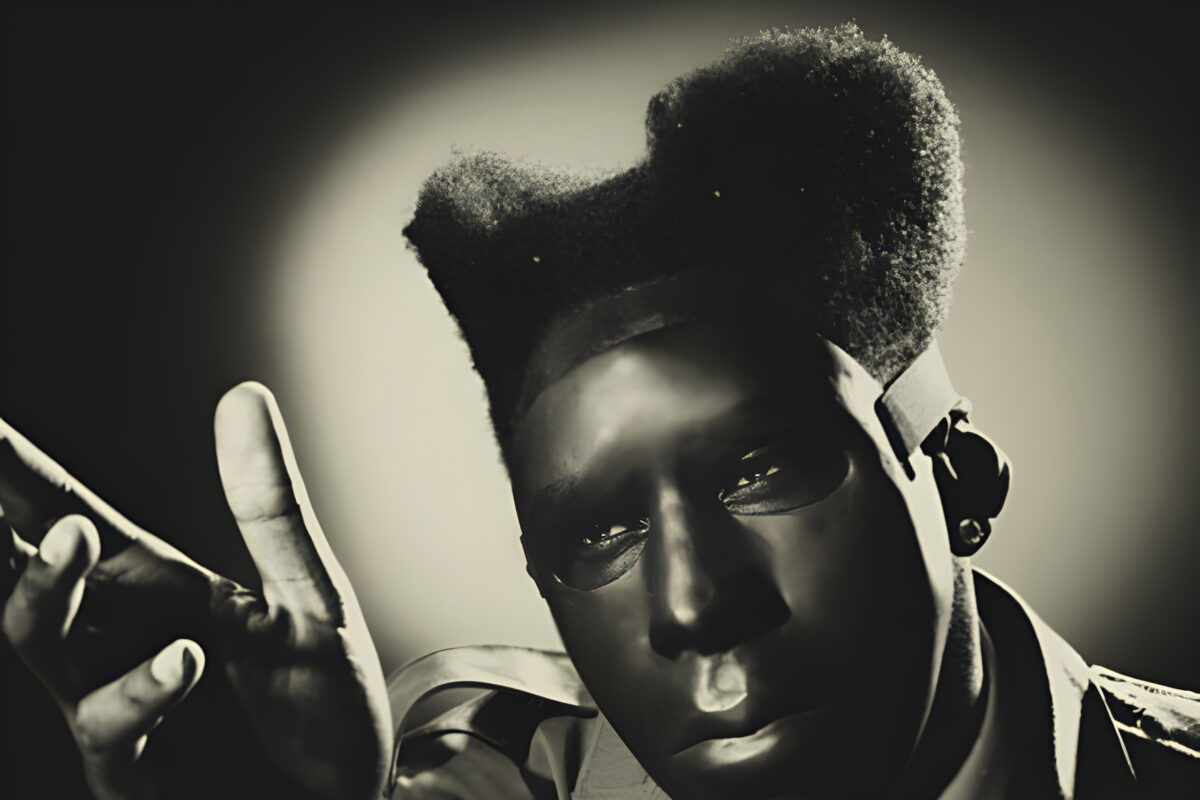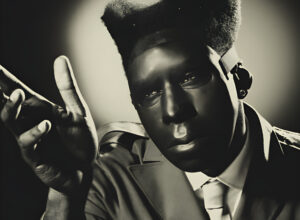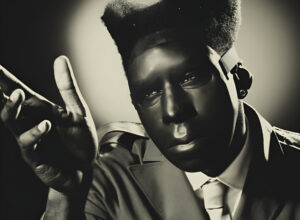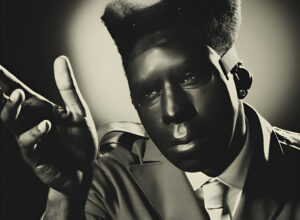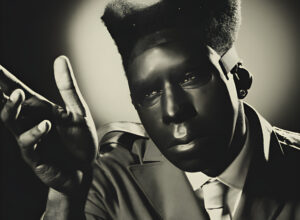Released: 2024
“Thought I Was Dead” by Tyler, The Creator featuring ScHoolboy Q and Santigold is an introspective yet defiant exploration of fame, self-awareness, and the complexities of personal identity within the hip-hop scene. The song grapples with themes of perceived demise and resilience, contrasting Tyler’s current successes against earlier doubts from others, punctuated by bold proclamations of self-worth and autonomy.
The repetitive opening hook, “You know don’t wanna go to war with a soldier,” sets an aggressive tone, serving as a warning of strength and perseverance. The phrase emphasizes the readiness to fight against obstacles and detractors. Here, ‘soldier’ is a metaphor for resilience, emphasizing Tyler’s unyielding spirit in the face of adversity. This theme of war-like tenacity against life’s challenges is central throughout the song.
As Tyler launches into his first verse, he reflects on his journey, beginning with “Okay, bitch I’ve been trapped in the zoo,” using the zoo metaphor to describe his feeling of being caged or observed as an artist. This might imply the constraints he feels due to fame. He quickly pivots to personal success with the line “Nigga got plaques like the crack of a tooth,” bragging about his achievements in music—gold or platinum records—which signify commercial success. Here, ‘plaques’ is cleverly juxtaposed with ‘crack of a tooth’ for a witty visual image, pointing to abundance and his unstoppable ascent.
The following lines convey Tyler’s yearning for freedom and magic in his life, stating “I need some space like the back of a coupe,” suggesting the need for personal breathing room akin to a spacious luxury car, while “I’m tryna magic wand, I’m tryna poof,” indicates his desire to make problems or naysayers disappear like magic. This sequence underlines Tyler’s introspection about his life changes and newfound successes.
In the chorus, “Them niggas thought I was dead,” Tyler reiterates how people underestimated him. The repeated declaration underscores a triumphant reclamation of identity and stature. It plays with the idea of being “dead” in the eyes of those who doubted his ability to evolve or stay relevant, cleverly refuting any past claims of obsolescence. The hook serves as a repeated reinforcement of his enduring presence and vitality.
ScHoolboy Q’s segment adds a gritty reality, talking about transitioning from his early street life to present-day successes, “Nigga, Rolls or the Royce, tryna program, I was really outside with the dopeman.” This juxtaposition illustrates his personal evolution and socioeconomic climb, using ‘program’ as a metaphor for establishing control over his life’s narrative.
Tyler’s verse progresses into a critique of wealth and social dynamics with the humorous line, “Niggas tend to get rich and they act weird.” His storytelling here conveys a disdain for inauthenticity among those who change drastically with newfound wealth, inferring that material gains should not compromise genuine character. The line is underscored with a touch of humor when referencing eccentric behaviors like “How you walkin’ up the party with your butt pierced?”
Tyler, reflecting on his artistic and personal maturity, states “See, T changed like the ‘fit got dirty,” referencing how time and experiences have influenced his outlook. By paralleling his life changes with an outfit’s wear, Tyler acknowledges his growth. He declares independence and sets boundaries with lines like “Uh-uh, don’t put me with these niggas,” establishing that he’s not aligned with industry norms or fake camaraderie.
A moment of candidness comes through with “I’m a fake-ass bitch, don’t kill me,” wherein Tyler wryly admits to hypocrisy, underlining a universal truth about self-perception versus public persona. It’s a playful acknowledgment of his complexity as both a celebrity and a human being, while humorously engaging in self-reflection.
The song wraps up by emphasizing Tyler’s disdain for inauthentic connections, encapsulated in “I don’t wanna be found, ya ho,” expressing a desire for seclusion from insincere relationships. This highlights the constant tension between public persona and personal privacy. Historically, Tyler, The Creator’s trajectory from a rebellious artist to a recognized, Grammy-winning talent underscores the depth of “Thought I Was Dead”—a reminder of his resilience and evolving artistry, simultaneously reinforcing the distinctive narrative voice that has shaped his career.
